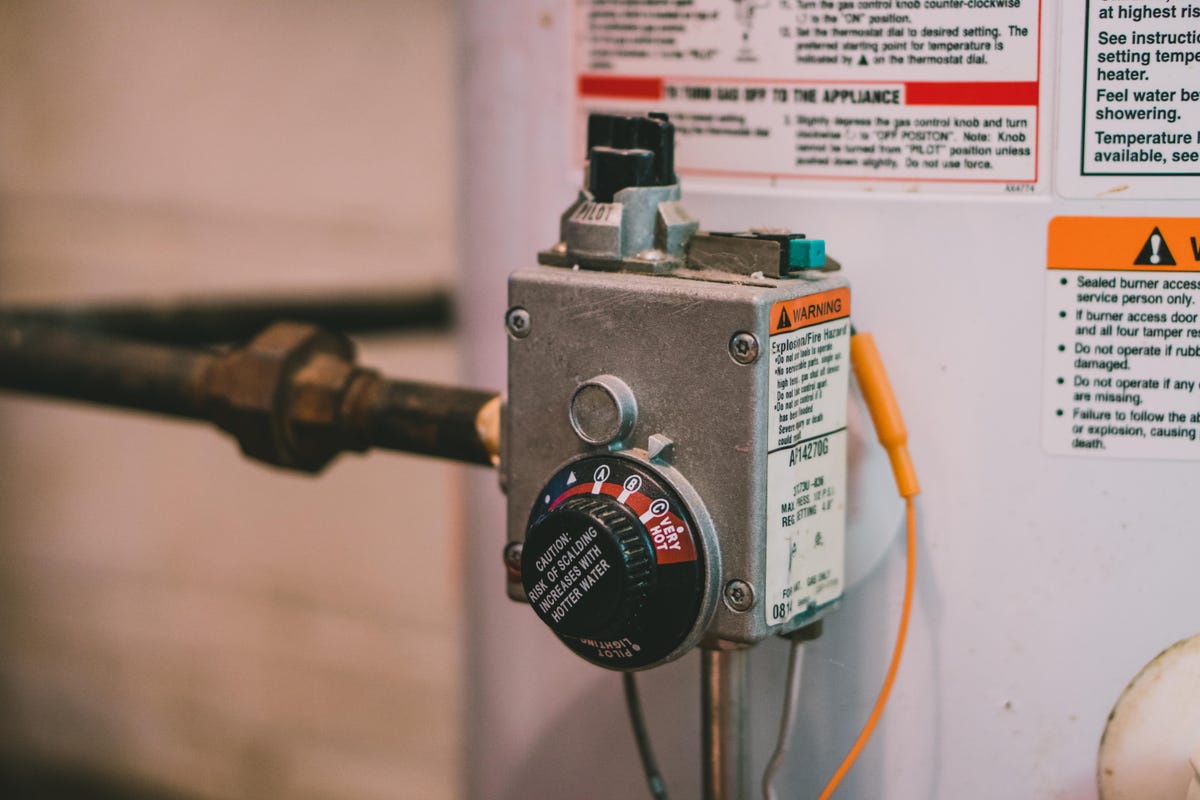Water heaters are often overlooked — they’re tucked away in a closet or relegated to a forgotten basement corner. If they don’t break or go on the fritz, most homeowners barely ever think about them. But they do need to be maintained, repaired and eventually replaced. And for many people, that means spending a good amount of money not only for a new water heater but also for an expert to come and do the work.
That expense might make it tempting to try and install a water heater on your own. While it may save you some money in terms of labor, it could cost you a lot more in the long run.
Can you install a water heater on your own?
In short: Yes, you can install a water heater on your own. There are, however, a lot of things to take into consideration. For one, you need to know what you’re doing, and you need to have the proper paperwork or permits to do it. For those reasons, experts recommend that you leave it to a professional — a plumber, specifically.
“I wouldn’t necessarily recommend it,” says Brandon Thompson, the owner of Circle T Handyman in Chicago. “I’d only do it if you’re pretty handy. There’s a little risk involved with all the plumbing, and if you have a gas water heater, there’s gas to worry about — it’s not so much a DIY thing unless you know what you’re doing.
Why you shouldn’t install a water heater yourself
While an enterprising DIYer could install a water heater, as Thompson mentions, they would need to know a bit about plumbing, wiring and gas. Depending on the specific type of new water heater being installed (if, for instance, you were replacing a gas water heater with an electric one or a hybrid version), you’d need to make sure that you have the proper wiring and infrastructure in place, too.
You’ll also need to be strong enough to lug out the old water heater, which may be incredibly difficult depending on where it’s located, and haul in the new one.
If you stop getting hot water, there’s a chance it’s time for that rusty old water heater to go.
“It can be a can of worms, and for homeowners who don’t have the supplies and know-how readily available, it can turn into a nightmare,” says Thompson.
Another big issue to contend with is permits. Because water heaters often use gas, many cities and states require that homeowners get the required permit to replace them. If you’re messing around with gas lines and improperly install a new water heater in a way that causes a gas leak, you could put yourself (and maybe your neighbors) in a dangerous situation. We recommend checking your local rules and regulations to see if a permit is required.
Finally, your homeowners’ insurance may require that a licensed professional install a new water heater. Again, since you could make a mistake with potentially devastating consequences, your insurer wants to know that the job is done correctly by someone who knows what they’re doing.
DIY vs. professional water heater installation
It’s possible to install a new water heater on your own but generally, not recommended. That doesn’t mean it’s not worth considering the pros and cons of a DIY-install versus a professional installation though.
Pros and cons of DIY installation
The main draw of installing your own water heater is that you’ll save money. While you need to buy the water heater, you’ll save on labor costs. Those costs will vary greatly depending on where you live, plumber availability and some other factors, but for most people, the prospect of saving some cash is the primary advantage of doing the job yourself. You may learn the ins and outs of your home a little more and pick up additional skills.
The drawbacks are that you may run into a situation where you don’t know what you’re doing and dangerously install the new water heater. You could also run afoul of your home insurer and local authorities if you fail to get a permit. Further, some towns may require an inspection following an installation just to ensure it was done correctly.

Pros and cons of professional installation
A professional installation is probably what a homeowner should be leaning towards. You can rest assured that the job will be done correctly. Plumbers are generally licensed and bonded, know exactly how to remove and install a water heater and may even haul your old one away. They’ll also know what permits and inspections will be required, too.
The disadvantage? It may be inconvenient, as you’ll be working on a plumber’s timeline. And, of course, you’ll need to pay them. Depending on several factors, you could be looking at a four-figure bill.
How much does it cost to install a water heater?
The average cost to have a professional install a new water heater in your home generally lands between $880 and $1,800 or so, according to data from Angi. But again, the costs can vary in a big way due to a number of factors, including the type of water heater being removed, the type being installed, where you live and more.
Remember, too, that you’ll be on the hook for permit costs, inspection costs and potentially necessary alterations to your home to get a new water heater in and the old one out. Thompson says he’s had to cut holes in walls and sand off edges of railings to make things fit.

From leaks to cold water, your hot water heater can fail in a couple of ways.
The costs associated with installing a new water heater will depend on the type of water heater being installed and the typical cost of labor charged by plumbers in your area. There are other things in the mix, but those are the two major factors.
Ultimately, even if it saves you some money to try and install the water heater yourself, CNET recommends that you call an expert to do the job. “The best thing to do is to call a plumber,” says Thompson.








